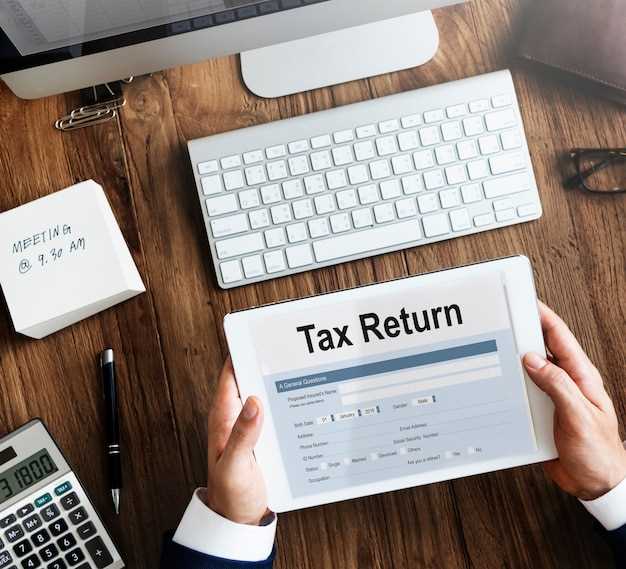Tax Implications and Financial Insights for Aussie Gamblers
To maintain financial health, Aussie gamblers should keep meticulous records of their wins and losses. Gambling winnings are considered taxable income in Australia, while losses may not be deductible unless you are a registered bookmaker or gambler. Consider tracking all your transactions to ensure you report accurately during tax time.
Engage with reputable platforms that provide clear information on how your gambling income might affect your tax obligations. Understanding these requirements can help you avoid surprises at the end of the financial year. If you’re frequently betting, consulting a tax professional who specializes in gambling-related finance can provide tailored advice to help minimize your tax burden.
Furthermore, consider setting aside a portion of your winnings for tax payments. This proactive approach reduces the stress of financial obligations when they arise. Familiarize yourself with allowable deductions related to gambling expenses, as these can potentially offset your taxable income, helping you retain more of your hard-earned cash.
By staying informed and organized, you not only enhance your gambling experience but also safeguard your financial future. Adopting smart practices today leads to more sustainable gaming habits and a clearer understanding of your financial landscape tomorrow.
Understanding the Gambling Tax Framework in Australia

Gamblers in Australia must understand their obligations under the tax framework governing gambling activities. Generally, gambling winnings are not taxable for individuals, meaning Australian residents do not report these earnings on their tax returns. However, if gambling becomes a business, different rules apply.
Individuals who operate gambling as a business face income tax liabilities. This includes those who consistently wager substantial amounts or engage in betting as a primary income source. It is advisable to maintain detailed records of all transactions, including wins and losses, to substantiate claims and expenses.
Different states and territories impose varying taxes on gambling operations, particularly for licensed casinos and sports betting companies. These taxes can significantly impact the profitability and pricing of gambling services. For instance, some jurisdictions implement a point-of-consumption tax, which charges operators a percentage of their revenue based on where the customer is located.
Additionally, poker machine taxes and licensing fees play a major role in the operational costs of venue owners. Venue operators must comply with local regulations regarding reporting and payments, ensuring adherence to state laws.
When exploring gambling investment opportunities, consider the tax implications for both winning potential and operational costs. Engaging with a tax advisor experienced in gambling regulations will help clarify your specific situation and any necessary compliance measures. Understanding this framework allows gamblers to make informed decisions and optimize their experiences responsibly.
Types of Gambling Income and Their Tax Status

Gambling income in Australia is primarily categorized into winnings from games of chance and professional gaming activities. Understanding the tax implications of each category is crucial for accurate reporting and compliance.
Winnings from Games of Chance
Winning from lotteries, poker machines, and other games of chance generally does not attract tax. As long as you’re not engaged in these activities as a professional gambler, your winnings remain tax-free. This includes funds obtained from state-run lotteries and random draws, which are normally exempt from income tax. Participants can enjoy their winnings without worrying about tax liabilities.
Professional Gambling Activities
If you earn a substantial portion of your income through gambling, the Australian Taxation Office (ATO) may classify you as a professional gambler. In this case, your gambling income becomes taxable. You would need to report this income on your tax return, and the ATO may assess your activities based on factors such as frequency, organization, and level of skill involved. Expenses directly related to your gambling activities can often be deducted, helping to minimize your taxable income.
It’s wise to maintain clear records of your gambling activities and any related expenses. By doing so, you ensure accurate reporting and compliance with tax obligations.
How to Calculate Your Gambling Winnings for Tax Purposes

Track all your gambling activities meticulously. Keep detailed records of each session, including dates, types of games, stakes, and outcomes. This helps clarify your net winnings.
For accurate calculations, you must differentiate between winnings and losses:
- Winnings: This includes any money earned from bets placed. For instance, if you bet $100 and win $300, your winnings amount to $200.
- Losses: Document all losses. If you wagered $50 and lost, that amount reduces your total winnings. Keep receipts or statements for verification.
Add your total winnings for the year and subtract your total losses. The result is your net gambling income. If your losses exceed your winnings, you do not owe taxes on gambling activities.
Utilize a gambling diary or spreadsheet to record these transactions clearly. It ensures you have everything organized when tax season approaches.
Last, consult the Australian Taxation Office (ATO) guidelines regarding gambling income. Understand any potential deductions or obligations. This knowledge will aid in submitting accurate tax returns.
Common Tax Deductions for Australian Gamblers
Australian gamblers can claim various tax deductions that help offset their gambling expenses. Understanding what qualifies can maximize your tax benefits.
Allowable Expenses
- Gambling Losses: You can deduct gambling losses against your gambling winnings. Keep accurate records of losses to substantiate your claims.
- Travel Expenses: If you travel specifically for gambling purposes, related travel costs, such as transport and accommodation, may be deductible. Keep receipts and a travel log.
- Membership Fees: Fees paid to join gambling clubs or memberships may be eligible for deduction. Ensure these are linked to your gambling activities.
Record Keeping
Maintain detailed records of all your gambling-related expenses. This includes receipts, bank statements, and logs of your gambling activities. Proper documentation supports your tax deductions and makes the process smoother during tax time.
- Transaction Logs: Document each gambling activity, including dates, locations, amounts wagered, and winnings.
- Receipts: Keep all receipts from gambling-related purchases. This can include entry fees, food, and drinks at venues.
Consulting with a tax professional can provide further insights tailored to your situation, ensuring you leverage available deductions effectively.
Navigating State-Specific Gambling Taxes
Understanding gambling taxes is crucial for Australian gamblers. Each state has its own rules, which can affect how much you pay on your winnings. Here is a brief overview of the tax implications by state.
| State | Tax Rate on Winnings | Additional Information |
|---|---|---|
| New South Wales | No tax on winnings | Gamblers in NSW only pay tax on gambling operators, not on personal winnings. |
| Victoria | No tax on winnings | Similar to NSW, personal winnings are not taxed. |
| Queensland | No tax on winnings | Winners do not incur personal tax liabilities. |
| Western Australia | No tax on winnings | Tax applies to gambling operators only, not to gamblers. |
| South Australia | No tax on winnings | Gamblers keep all their winnings tax-free. |
| Tasmania | No tax on winnings | Winnings are not taxed, focusing instead on operator taxes. |
| Australian Capital Territory | No tax on winnings | Bettors do not pay tax on their gambling winnings. |
| Northern Territory | Low tax on gambling operators | No tax on individual winnings. |
Unlike some countries, Australia doesn’t charge tax on personal gambling winnings at the state level. This structure benefits regular gamblers. However, remember to keep accurate records of all transactions for personal justification, especially if your gambling activities change.
If you are a professional gambler, different considerations may apply. Stay informed about local laws, as they can impact your overall tax obligations. Always consult with a tax advisor familiar with Australian gambling regulations to ensure compliance and optimize your financial strategy.
Record-Keeping Practices for Gamblers to Simplify Tax Filing
Keep a detailed log of your gambling activities. Record the date, type of gambling, location, amounts wagered, and winnings or losses. This will provide a clear picture of your financial activities and support your claims at tax time.
Use digital tools for tracking your gambling transactions. Spreadsheets and dedicated apps can streamline record-keeping and allow for easy updates. Choose a method that you find convenient, ensuring that it’s easily accessible when needed.
Collect receipts from all gambling activities. This includes tickets, withdrawal slips, and any other proof of transactions. Store these documents in an organized manner, whether digitally or physically, to ensure easy access during tax preparation.
Review your records regularly to ensure accuracy. Regular checks help identify any discrepancies early on. Adjust your logs as necessary to reflect any changes or corrections promptly.
Maintain transaction records from online platforms. Many betting sites provide transaction history, which can simplify tracking your gambling income and losses. Download and store this information systematically for reference.
Consult a tax professional if you have any uncertainties. They can provide tailored advice specific to your gambling profile and ensure compliance with current tax regulations. A professional can help clarify any complexities regarding your records and obligations.
Review tax laws related to gambling in Australia annually. Regulations can shift, influencing how winnings and losses are reported. Stay informed to ensure your records meet all requirements.
Impact of Gambling Losses on Tax Returns for Aussie Gamblers
Gambling losses cannot be claimed as tax deductions for individual gamblers in Australia. Unlike the United States, where losses may offset gambling winnings, Australian tax law does not allow this offsetting. This means if you incur losses from gambling activities, such as poker machines, sports betting, or casinos, those losses do not reduce your taxable income.
It’s crucial to keep meticulous records of all gambling activities, including wins and losses. This documentation can serve as a reference for personal budgeting and financial planning, even if it doesn’t impact tax returns. Individual gamblers should also consider potential winnings, as any amount received from gambling must be reported as income. This applies whether the winnings come from poker, betting, or lottery tickets.
Savvy gamblers often integrate their gambling activities within broader financial strategies. Employing a disciplined approach helps maintain control over expenditures and supports responsible gambling behavior. Limiting losses through set budgets and time limits may provide psychological benefits alongside financial ones.
For professional gamblers who meet the criteria set by the Australian Taxation Office (ATO), different regulations apply. These individuals may operate their gambling activities as a business and could potentially claim gambling losses as business expenses. Criteria include the frequency of gambling, intention to make a profit, and organization of the operation. Seeking advice from a tax professional can clarify eligibility and maximize tax benefits.
In summary, amateur Aussie gamblers should prioritize maintaining clear records of their activities and be aware that losses do not impact tax returns. Professional gamblers have additional avenues for tax considerations, making expert guidance invaluable in these scenarios.
Financial Strategies for Managing Gambling-Related Taxes
Track all gambling income and losses meticulously. Keep a detailed log of every transaction, including dates, amounts won or lost, and types of bets made. This documentation can serve as evidence during tax filings, especially if you need to substantiate any claims of losses against winnings.
Understand Deductions
Familiarize yourself with allowable deductions related to gambling. While Australia generally does not allow deductions for gambling losses against income, if you are considered a professional gambler, certain expenses can be deductible. This includes costs associated with maintaining gambling tools or other direct business expenses. Consult with a tax professional to clarify your status and optimize your deductions.
Separate Finances
Establish a dedicated gambling account to segregate your gambling activities from personal finances. This approach simplifies tracking profits and losses, making it easier to prepare your tax returns. Using this account also aids in establishing patterns of wins and losses, offering a clearer financial picture when preparing for taxes.
Video:
How The Australian Tax System Works in 2025 (Explained in 5 Minutes)
How The Australian Tax System Works in 2025 (Explained in 5 Minutes) by Bryan Invest 29,779 views 7 months ago 6 minutes, 4 seconds
Questions and answers:
What are the tax obligations for Australian gamblers?
In Australia, the tax obligations for gamblers primarily depend on whether they are classified as professional or recreational gamblers. Recreational gamblers generally do not have to pay tax on their winnings, as these are not considered taxable income. However, if gambling is your primary source of income, you may be viewed as a professional gambler, which means your winnings would be taxable. Additionally, losses can potentially be claimed as deductions, but professional status must be established for this. It’s advisable to consult with a tax professional to understand your specific situation.
Are there any specific tax deductions available for gamblers in Australia?
Yes, there are certain deductions that may be available to professional gamblers in Australia. If you are recognized as a professional gambler, you may deduct expenses directly related to your gambling activities. This can include costs such as travel expenses to australian dollars online casino, fees for gambling software, and other related expenses. However, it is crucial to keep detailed records and receipts of these expenses to substantiate your claims during a tax audit. Always seek guidance from a tax advisor for accurate advice tailored to your circumstances.
How does the Australian Tax Office (ATO) view gambling winnings?
The Australian Tax Office (ATO) has specific guidelines regarding gambling winnings. For most recreational gamblers, winnings are not subject to income tax because they are considered a form of luck rather than income earned through effort. However, for professional gamblers, winnings are treated like business income, and therefore, tax is applicable. It’s vital for those who gamble regularly to understand when they fall into each category to comply with taxation requirements.
What financial advice is available for casual gamblers in Australia?
Casual gamblers in Australia should focus on responsible gambling practices to ensure they maintain control over their finances. It’s beneficial to set a budget before gambling and stick to it, avoiding the temptation to chase losses. Additionally, consider keeping track of your gambling spending to have a clear picture of your financial involvement. It may also be helpful to seek resources from organizations that promote responsible gambling for further support and education on best practices.
What should I do if I’m unsure about my gambling tax liabilities?
If you’re uncertain about your gambling tax liabilities, the best course of action is to consult a tax professional who specializes in Australian tax law. They can provide personalized advice based on your gambling activities and financial situation. Keeping detailed records of your gambling income and expenses, as well as any correspondence with the ATO, can also assist your tax advisor in giving you the most accurate guidance.
